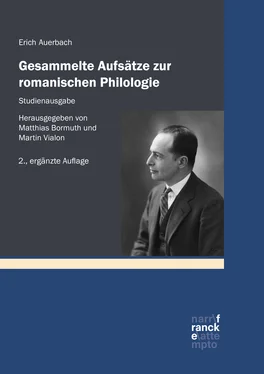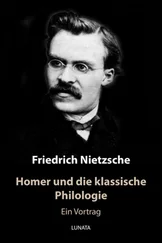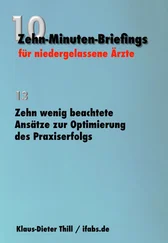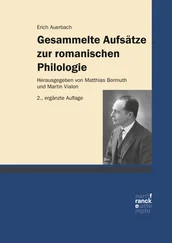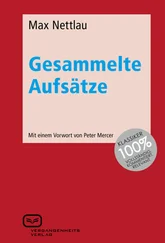Yet there is a limit to DanteDante’s attempt to carry the reader along with him on the journey: the reader of the poem never becomes an actual companion of the journey. DanteDante alone, among the living, has been in Hell, in Purgatory, and in Heaven. One passage, an address to the reader, may seem to cast doubt on his claim. It is the most sublime of all, the beginning of Par. II, 1–15: O voi che siete in piccioletta barca … It is extremely tempting to interpret this apostropheApostrophe as addressed not to readers of a book, but to actual followers on a journey. If one isolates these fifteen verses from the remainder of the poem, such an interpretation would not be difficult. It would imply the explanation of qui (vs. 11–12: … al pan de li angeli, del quale / vivesi qui ma non sen vien satollo ) not as ‘here on earth’, but as ‘here in heaven’. That makes sense since many authoritative texts, from AugustineAugustinus to Peter DamianiPetrus Damiani and Richard of St. VictorRichard v. St. Victor,21 describe the beatitude of the blessed as an insatiabilis satietas , where the celestial manna is given ad plenitudinem, sed numquam ad satietatem . One could even go on to demonstrate that only in Heaven one lives really on the bread of Divine Wisdom which is per se vivcativus …22 Yet all this would be misleading. The traditional explanation of qui as ‘here on earth’ is correct; DanteDante’s readers are summoned to interrupt (or to continue) the reading of a book, not a journey through Heaven. For it is not even certain whether, at the moment of this address, Beatrice and DanteDante have already entered Heaven. Furthermore, DanteDante, as the narrator, invariably uses qui for ‘here on earth’.23 Finally, just a short time ago (in Canto I, 4ff.) he has said that he has been in Heaven ( nel ciel … fu io ) and is now going to report his experiences:
Veramente quant’ io del regno santo
ne la mia mente potei far tesoro,
sarà ora matera del mio canto.
At this point, as always, he remains the man who has returned from the other world and records what he has seen, so that others may read it.
DanteDante was the writer of a book, and the vas d’elezione of a revelation which he had to report in that book. Hence, the book had to combine didactics and poetic fascination; a forceful charming of the soul which particularly suited his revelation, since this was shaped as a sequence of events, as a journey through the other world, highly emotional in all its parts, and linked at every moment to the most urgent problems of contemporary life. The Commedia is a special development of the tradition of the Gospels, which also were a revelation of a doctrine centered around an historical event. As the announcer of a revelation, the poet surpasses his readers: he knows something of the highest importance which they have to learn from him. In spite of the charity that he exercises towards his fellowmen, by imparting his knowledge, and of the fact that, as a human being, he is their equal before God, Divine Grace, by electing him for this special revelation, has rised him above all other mortals. The reader is not his equal. He may well repudiate DanteDante’s message, accuse him as a liar, a false prophet, an emissary of Hell, yet he cannot argue with him on a level of equality, he must ‘take it or leave it’. These last sentences, of course, are exaggerated; the contemporary reader already knew that all this: mission, journey, and actual revelation in Purgatory and Heaven, was poetical fiction. But a fiction so fused with reality that one easily forgets where its realm begins; and DanteDante’s narrative is so dense, so invariably consistent in its linking of true events that some of its realistic suggestion survives, at least temporarily, in many minds. At any rate, his relation to the reader, as expressed in the addresses, is inspired by this ‘poetic fiction’: DanteDante addresses the reader as if everything that he has to report were not only factual truth, but truth containing Divine Revelation. The reader, as envisioned by DanteDante (and in point of fact, DanteDante creates his reader), is a disciple. He is not expected to discuss or to judge, but to follow; using his own forces, but the way DanteDante orders him to do.
I know of, at least, one classical apostropheApostrophe, linked with an address to the hearer, which seems comparable to DanteDante’s loftiest addresses as regards its sublimity and its urgency. It is due to a man who is himself comparable to DanteDante – both had the same psychagogical power, the same partiality, the same vindictiveness and cruelty toward their enemies; also, both experienced an utter failure of all their political aspirations. I am thinking of DemosthenesDemosthenes. In 330 B. C., when Philip of MacedonPhilipp v. Makedonien was dead and his son AlexanderAlexander d. Große far advanced in the conquest of Persia, Demosthenes had to defend his policy of resisting Philip’s power in the past. At the time when he made his famous speech on the Crown, everyone, including himself, knew that the policy of resistance had failed. The battle of Chaironeia (338) had decided against Greek independence and against the course of Demosthenes. In a certain passage of the speech (199ff.), he raised the question whether a policy worthy of the Athenian tradition of defending Greek independence should be condemned because fate had denied it victory. His answer was, no.
Even had we been able, he says, to foresee what was to happen, we should have acted as we did. You followed my advice at that time. That is your glory as it is mine. If you now condemn this policy, as my opponent [Aeschines] requires you to do, that would rob you of the enduring praises of posterity; you would appear not as men who suffer the blows of insensible fate, but as men who have done wrongly.24 But it cannot be, no, men of Athens, it cannot be that you have acted wrong, in encountering danger bravely, for the liberty and the safety of all Greece. No! by those generous souls of ancient times who were exposed at Marathon, by those who stood arrayed at Plataeae, by those who encountered the Persian fleet at Salamis, who fought at Artemisium, by all the brave men whose remains lie deposited in the public monuments. All of whom received the same honorable interment from their country, Aeschines: not those only who prevailed, not those alone who were victorious. And with reason. What was the part of gallant men they all performed; their success was such as the deity dispensed to each.
This apostropheApostrophe of § 208: μὰ τοὺς Μαραϑῶνι προϰινδυνεύσαντας was the most famous passage of oratory in Graeco-Roman history. In modern times, as long as Greek was an essential part of higher education, many generations of students read and admired it. Read after more than twenty-two centuries, in a private study (not, as it once was, delivered in a stormy political assembly by an incomparable master of rhetoric), it still has the power to make the reader’s heart beat faster. It represents the most magnanimous, and also the most violent, attempt to win the support of the audience wich classical literature has bequeathed to us. Still, there can be no doubt that DemosthenesDemosthenes is arguing a cause, and that he awaits the decision of his hearers. He is not supported by the infallible judgment of the Divinity. On the contrary, this lack of an unerring ally becomes his strongest argument. He argues against the Divinity. For his divinity, FateFatum, decides only what happens; it cannot decide what is right or wrong. This decision belongs to the men of Athens, to their conscience, guided by the traditions of their city. Demosthenes, a man of Athens, appeals to the judgment of his equals, the citizens of a community proud of having been, since the days of Marathon, the champion and protector of Greek independence. He does not know the future; the object of his interpretation is the past; and his opponent, AeschinesAeschines, has the same right as he to submit another interpretation of that past to the decision of their fellow citizens.
Читать дальше
